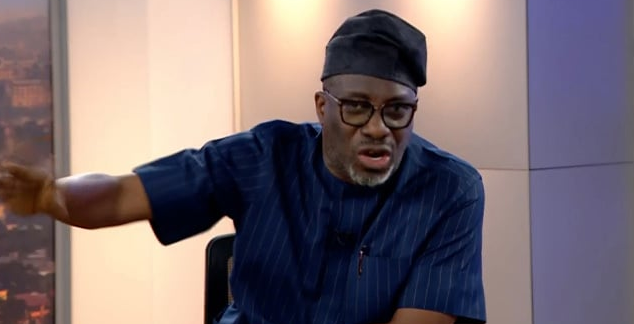A chieftain of the Peoples Democratic Party (PDP), Segun Sowunmi, criticizes the recent tax reform bills to President Bola Tinubu pointing at the leadership approach.
The tax reform bills introduced by Tinubu’s administration have sparked widespread controversy across Nigeria. As reported, that the 36 state governors, under the National Economic Council (NEC), have raised concerns, with some northern governors explicitly rejecting portions of the reforms. Sowunmi believes Tinubu’s choice of appointments and their perceived bias have fueled distrust among Nigerians.
During an interview on Channels Television’s Sunday Politics, Sowunmi criticized Tinubu and the All Progressives Congress (APC) for appointing individuals predominantly from his Yoruba ethnic group to key financial and economic positions. He highlighted the appointments of the Finance Minister, Federal Inland Revenue Service (FIRS) chairman, Central Bank of Nigeria (CBN) governor, and Tax Reform Committee chair, all of whom hail from the same region.
Sowunmi argued; while the tax reforms may have merit, the lack of ethnic inclusivity has created anxiety in other regions. He said this imbalance made Nigerians outside the Yoruba ethnic group wary of the administration’s intentions.
“You can’t have the FIRS chairman, finance minister, customs boss, and CBN governor all from one place. It creates nervousness among others,” Sowunmi stated. He emphasized that inclusivity is vital for fostering trust and reducing opposition to national policies.
He stressed the importance of involving representatives from diverse regions to ensure transparency and build confidence in the reforms. “People are in the National Assembly to protect their regions’ interests. If you exclude them, they will resist policies that seem unfair,” he added.
Sowunmi urged Tinubu to address the concerns of northerners and other affected groups directly. He suggested that the President should clarify the benefits of the reforms in a language that resonates with them. He also noted that governance requires balancing regional representation to avoid unnecessary conflicts.
“You may mean well,” Sowunmi said, “but let others see their people at the table to ensure fairness. Nobody will support policies that might harm their community.”
The ongoing pushback highlights the critical role of inclusive governance in managing sensitive reforms like tax policy. Sowunmi believes Tinubu must prioritize dialogue and representation to resolve the growing tensions.
As debates over the tax reforms continue, like Segun Sowunmi criticizes the decision of President Tinubu, many Nigerians await clearer communication and assurances from the administration. Tinubu’s response to the criticism of this decision may significantly influence public perception and the reforms’ eventual success.







